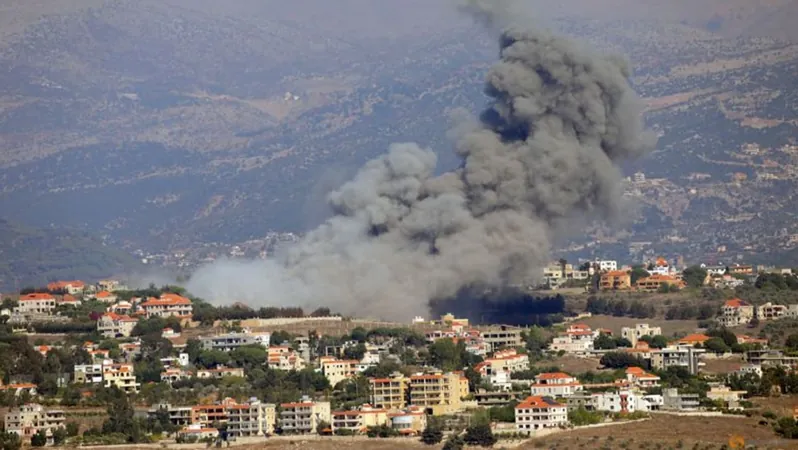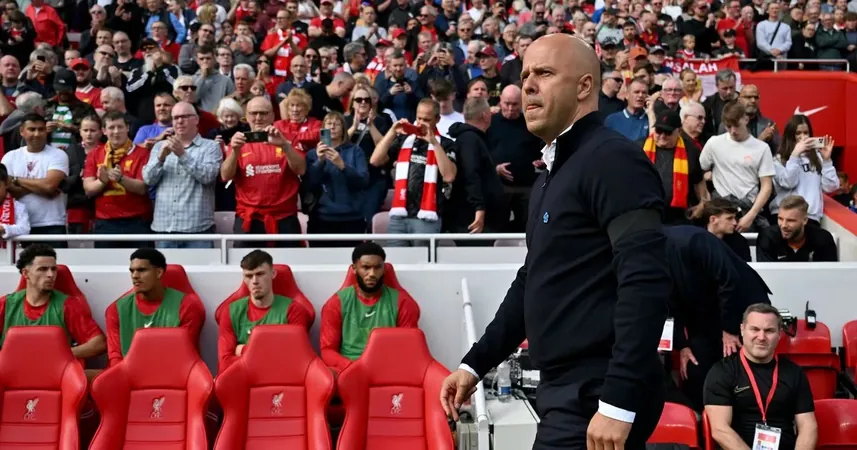
Tensions Escalate: Israel's Finance Minister Dismisses Ceasefire Proposal and Vows to Crush Hezbollah
2024-09-26
Overview of the Situation
In a bold and defiant stance, Israel's far-right Finance Minister Bezalel Smotrich has outright rejected calls for a 21-day ceasefire in Lebanon, emphasizing the need to decisively defeat the militant group Hezbollah. This response comes amid escalating violence that has claimed hundreds of lives and displaced tens of thousands across Lebanon following recent Israeli airstrikes targeting Hezbollah positions.
International Reactions
The call for a ceasefire was made jointly by key international players, including the United States, the European Union, and various Arab nations, who are deeply concerned about the humanitarian crisis unfolding in Lebanon. Tensions have surged as the situation became increasingly volatile; hours before the ceasefire proposal was made, Israeli army chief Lieutenant General Herzi Halevi instructed troops to prepare for a potential ground invasion into Lebanon.
Bezalel Smotrich's Stance
Smotrich, a prominent figure in Prime Minister Benjamin Netanyahu's right-wing coalition, firmly opposed the ceasefire, asserting that the only viable resolution to the ongoing conflict lies in the complete dismantling of Hezbollah's capabilities. 'The campaign in the north must conclude with one clear outcome: the annihilation of Hezbollah and the end of its threats against our northern communities,' he declared on social media platform X.
Opposing Views
His remarks highlight a fundamental belief among some Israeli leaders that any pause in military action would allow Hezbollah to regroup and fortify its position. 'We can't allow the enemy to use a ceasefire as a breather,' he cautioned. 'The choice is clear: Hezbollah must either surrender or face continued warfare.'
Political Responses
In contrast, opposition leader Yair Lapid took a more measured approach, advocating for a shorter, seven-day ceasefire aimed at disrupting Hezbollah’s strategic operations. 'Any ceasefire must ensure the withdrawal of Hezbollah from our borders,' Lapid emphasized, suggesting that extended pauses could jeopardize regional security.
Context and Implications of the Conflict
This intensifying conflict is part of a broader wave of violence that erupted on October 7, when the Palestinian militant group Hamas launched an unprecedented attack on Israel. Just a day later, Hezbollah began firing rockets into Israeli territory, claiming it was acting in solidarity with Hamas. The significant military response from Israel has led to unprecedented clashes along the Israel-Lebanon border, reminiscent of Lebanon's dark civil war era from 1975 to 1990.
Conclusion
As the fighting escalates, the international community is watching closely. The potential for further military action could not only destabilize Lebanon but also threaten broader regional security as geopolitical tensions within the Middle East continue to mount. The question remains: can diplomacy prevail in halting the violence, or are we on the brink of a larger war?



 Brasil (PT)
Brasil (PT)
 Canada (EN)
Canada (EN)
 Chile (ES)
Chile (ES)
 España (ES)
España (ES)
 France (FR)
France (FR)
 Hong Kong (EN)
Hong Kong (EN)
 Italia (IT)
Italia (IT)
 日本 (JA)
日本 (JA)
 Magyarország (HU)
Magyarország (HU)
 Norge (NO)
Norge (NO)
 Polska (PL)
Polska (PL)
 Schweiz (DE)
Schweiz (DE)
 Singapore (EN)
Singapore (EN)
 Sverige (SV)
Sverige (SV)
 Suomi (FI)
Suomi (FI)
 Türkiye (TR)
Türkiye (TR)